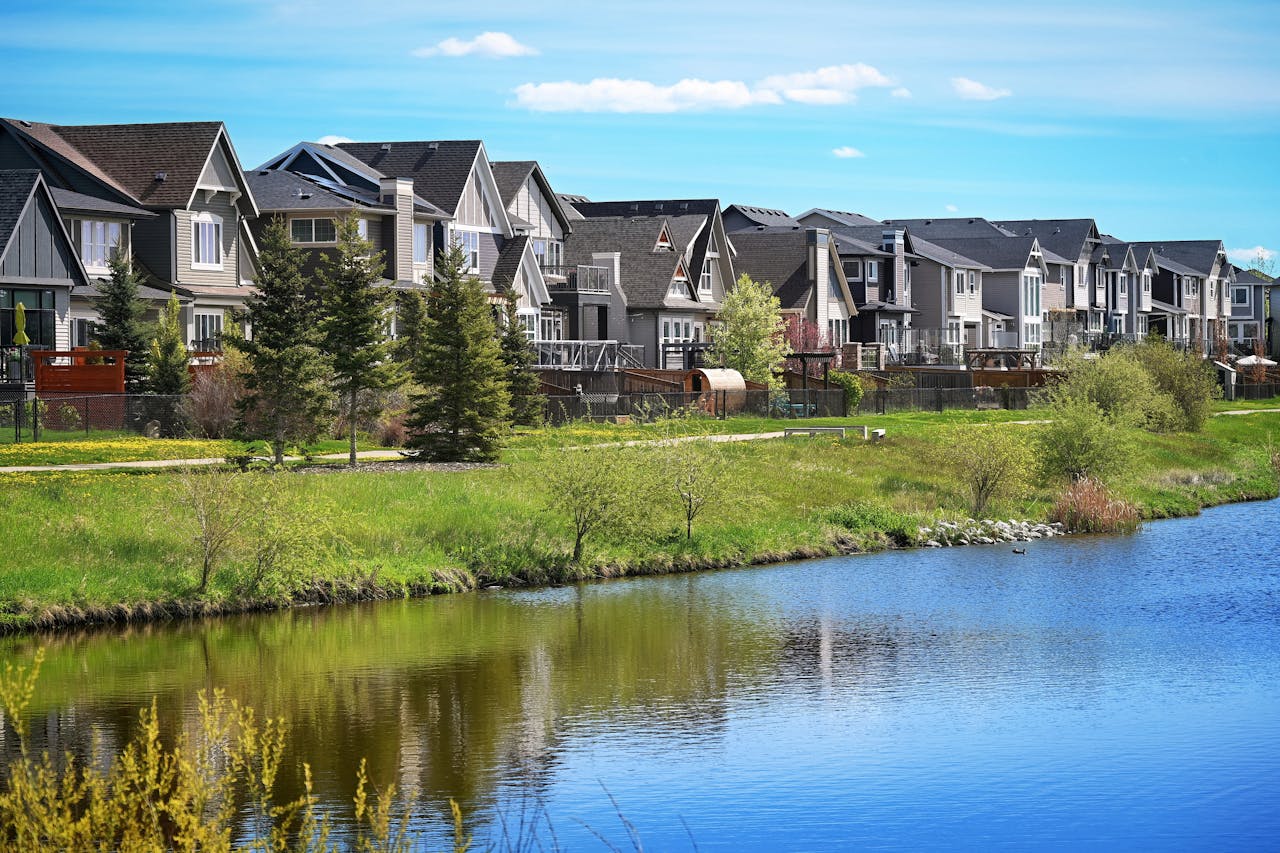Paying property taxes is part of owning a home in Calgary, Alberta. If you are a homeowner, you should understand how these taxes work, how they are calculated, and why they are important. This guide will help you with the basics of property taxes in Calgary, including useful programs, payment options, and ways to manage your tax bill.
What Are Property Taxes?
Property taxes are payments that homeowners make to the City of Calgary and the Province of Alberta. This money is used to pay for local services such as:
- Garbage collection
- Road maintenance
- Public parks
- Fire and police services
In Calgary, about 65% of your property tax goes to the City for these services. The other 35% goes to the Province to help fund education and other programs.
The City of Calgary is also planning to add 88,000 new residents between 2022 and 2026. This means the City will continue to invest in growth and infrastructure.
How Property Taxes Are Calculated
The City of Calgary calculates your property taxes using a simple formula:
Property value × Tax rate = Property tax- Property value: This is the amount the City of Calgary says your home is worth. The City assesses properties every year to figure out their market value.
- Tax rate: The tax rate is set by the City of Calgary and the Province of Alberta. They use the money from these taxes to meet their budget needs.
Example of Property Tax Calculation
In 2024, the median single residential assessment was $610,000. If the total tax rate was 0.006486%, you would multiply that by your property value:
$610,000 × 0.006486% = $3,955 (approximate tax bill)
This amount would be your yearly property tax for 2024.
Payment Options for Calgary Homeowners
There are a few different ways you can pay your property taxes in Calgary:
- Lump sum payment: Pay the full amount of your tax bill once a year. This payment is due by June 28.
- Monthly payments: You can join the Tax Instalment Payment Plan (TIPP), which lets you pay your taxes monthly instead of in one big payment.
What Happens If You Miss a Property Tax Payment?
If you do not pay your property tax on time, the City may add a penalty of 7% for late payments. It’s important to keep up with payments to avoid these penalties.
Trends and Data on Property Taxes
The table below shows some key numbers about property taxes in Calgary:
Year | Median Home Value | Tax Rate | Industrial Property Value Change | Non-Residential Property Value Change |
2023 | $555,000 | 0.00623% | 9% | 3% |
2024 | $610,000 | 0.006486% | 9% | 3% |
Why Do Property Taxes Change?
Several factors can cause your property taxes to go up or down:
- Changes in your home’s value: If the value of your home increases, your taxes may go up. For example, if your home’s value was $555,000 in 2023 and rose to $610,000 in 2024, your property tax would increase.
- Changes in the tax rate: The City and Province adjust tax rates based on their budget needs. Sometimes these rates go up to cover more services
How Calgary Property Tax Compares to Other Cities
Calgary has some of the lowest property taxes compared to other large Canadian cities. Here’s a look at how it compares:
City | Average Property Tax |
Toronto | $4,966 |
Vancouver | $4,631 |
Calgary | $2,564 |
This shows that Calgary is more affordable for homeowners when it comes to property taxes.
Relief Programs for Homeowners
If you are having trouble paying your property taxes, there are several programs that can help:
- Fair Entry Program: This helps low-income homeowners get a break on their taxes.
- Alberta Seniors Property Tax Deferral Program: Seniors can delay paying part of their property tax until a later time.
- Compassionate Property Tax Penalty Relief Program: If you are dealing with difficult circumstances, this program might help reduce penalties on your taxes.
What to Do If You Disagree with Your Property Assessment
Sometimes, homeowners feel their property is valued too high. If you believe your property assessment is wrong, you can file an appeal with the City of Calgary. This will allow you to challenge the assessment and possibly lower your property taxes.
To file an appeal, visit the Assessment Review Board (ARB) or go online to the City of Calgary’s assessment portal.
Non-Residential Property Taxes
Businesses in Calgary also have to pay property taxes. However, the tax rates and property assessments for businesses can differ from those for homes.
- Industrial properties saw a 9% increase in 2024, showing strong demand in the market.
- Office property values remained stable.
How to Stay on Top of Your Property Taxes
Here are some tips to manage your property taxes effectively:
- Review your property assessment every year. If something looks wrong, file an appeal.
- Join the TIPP program to make monthly payments instead of one large sum.
- Check for relief programs to see if you qualify for any assistance.
For more details, you can use the City of Calgary’s property tax calculator to estimate your tax bill for the upcoming year.
In Conclusion...
Property taxes may seem complicated, but by understanding how they work, you can better manage your payments and avoid surprises. Whether you’re paying in a lump sum or through monthly payments, keeping track of your property value and knowing about relief programs can help make the process easier. Ready to discuss your home ownership opportunity in Calgary? Join us for a FREE Meet & Greet Event on October 26th, 2024 where we shall discuss homeownership with legal, realty and mortgage experts. It starts at 3pm, so RSVP and book your space now by clicking here today.





